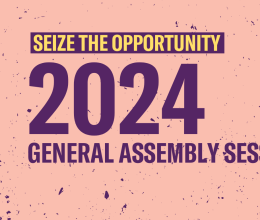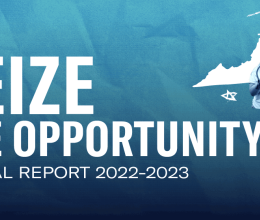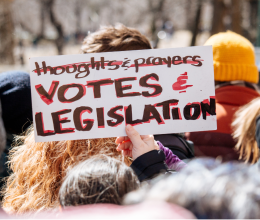
The ACLU of Virginia today argued that the State Board of Elections (SBE) should not grant a Republican Party of Virginia (RPV) request to withdraw a requirement that presidential primary voters affirm their party identification before casting a ballot.
More than 1,300 absentee ballots already have been cast in the primary, according to SBE officials. All of these voters were required to submit the affirmation. The ACLU of Virginia, which opposed the affirmation requirement before it was imposed, objected to changing election requirements after the voting had begun.
Hope Amezquita, Staff Attorney and Legislative Counsel at ACLU-VA said during comments to the SBE at the meeting: “Much as we decry and dispute the original decision to implement an affirmation requirement, simply said, two wrongs don’t make a right.”
Nonetheless, the SBE unanimously approved the RPV’s request.
Following is the ACLU-VA’s complete statement, which Amezquita delivered at the SBE meeting this morning:
“The ACLU of Virginia believes that any limitations on the free exercise of the right to vote, particularly in a state-financed primary, are to be avoided even if legal. Virginia must stop putting new barriers in front of voters and take down any unnecessary bureaucratic walls that bar access to the voting booth.
“It is true that the affirmation proposed this year by the Republican Party and approved by the State Board is significantly different than that proposed by the Party in 2011-12. This year’s ‘affirmation’ only asks the voter to state that he or she is a Republican. This is not much different from party registration in other states. Indeed, it is arguable that the party has a first amendment right of association that allows it to require primary voters to exhibit this degree of party affiliation.
“Nonetheless, before the affirmation was put in place, we encouraged the Virginia Republican Party to do what it did in 2012 and rescind its decision to require a loyalty oath of any kind. We asked them instead to work with us to open access to the voting booth to more Virginians rather than limit access in this way. The Party chose not to do that, and the State Board went forward with taking the steps, spending the money, and training the people needed to implement the Republican Party’s ill-considered requirement.
“Now we have a different problem. The Republican Party is before this Board asking to have a voter requirement rescinded after an election has begun and ballots have been cast.
“Election requirements must be established and implemented fairly and uniformly for all voters. The bill of rights in the Virginia constitution states it simply – the people have a right to a “uniform” government. Methods of voting also are to be as “uniform” as practicable and the system of voter registration is to be “uniform.” Whether it’s a pilot project being proposed or a change in requirements in the middle of the election, voters have a constitutional right to experience the election process uniformly and equally. If there is an affirmation requirement, it must be equally applicable to all voters regardless of when they vote (early or late in the process).
“Much as we decry and dispute the original decision to implement an affirmation requirement, simply said, two wrongs don’t make a right.”




